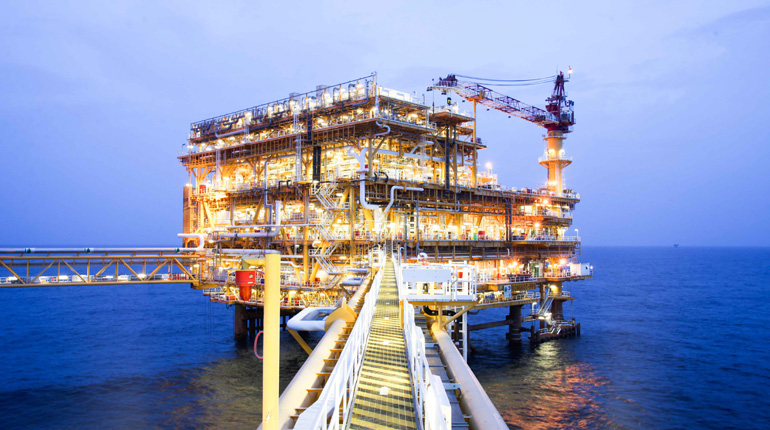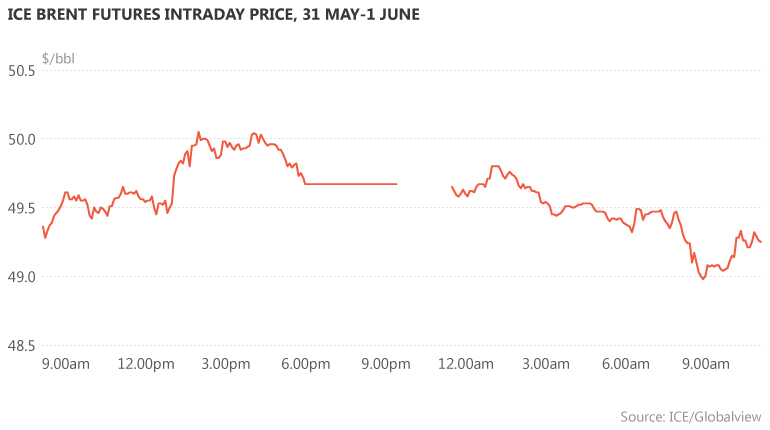 Bongkot South platform, Thailand. PTTEP runs the Bongkot concession, which is up for renewal in 2023. (BG Group)
Bongkot South platform, Thailand. PTTEP runs the Bongkot concession, which is up for renewal in 2023. (BG Group)
Thailand will open bidding for major gas-producing blocks operated by Chevron and state-backed PTTEP once their licences expire, instead of directly negotiating extensions with the operators, following pressure from local NGOs for improved transparency.
Chevron operates the licence for the Erawan gas field, which is due to expire in 2022, while PTTEP runs the Bongkot field concession, up for renewal in 2023. The two fields have a combined output of 62.3 million cubic metres per day, 76% of the total output from the Gulf of Thailand. Both the ageing fields have about 10 years of production left once the concessions expire, according to estimates by investment bank Macquarie.
The auction for the contracts will start in Q3 2016, once the amended version of the Petroleum Act comes into force, and awards will be made within a year, Energy Minister Anantaporn Kanjanarat told local media, the Bangkok Post reported on Monday.
Common sense suggests PTTEP and Chevron will continue beyond the end of the current concessions to avoid interruptions to the supply of gas. But "the government is under a lot of competing pressures, from nationalists and NGOs, and it was worried about favouring any particular party. [An auction] allows the government to claim transparency and fairness," Mark Hutchinson, a Bangkok-based Asian upstream specialist at consultancy AWR Lloyd, told Interfax Natural Gas Daily.
If the terms on offer are favourable, Hutchinson expects there will be other interested bidders. "These are large, but declining fields, and still potentially have a lot of gas. PTTEP, Chevron and their partners will know the most about the assets," he added.
Stability concerns
Thailand uses gas for almost 70% of its power generation, which has led the National Energy Policy Council to highlight the risks of gas shortages if the operators have to decommission for new investors. "From [the tone of the council] we believe the government preference is for existing operators to continue to maintain production stability," said Duke Suttikulpanich, a Thai oil and gas analyst at Macquarie.
Adrian Pooh, southeast Asia senior upstream analyst at Wood Mackenzie, agrees the current operators are best placed to continue developing the blocks. "But in light of the possible fiscal changes to increase the government’s share of revenues, any potential bidders – including PTTEP and Chevron – would have to consider if they can improve or at least continue to manage these fields well to achieve an appropriate rate of return," he told Interfax Natural Gas Daily.
Macquarie expects the government take will increase as the new fiscal regime for the two fields could be more stringent. Both Bongkot, in which the merged BG-Shell group and Total are partners, and Erawan come under the Thailand 1 regime, with the government’s take pegged at around 60%. "We think the new regime will be based on the more current Thailand 3 regime, which sees the government take at around 80%," Suttikulpanich wrote in a report.
Hutchinson expects Thailand’s upstream to remain attractive as long as the government does not impose onerous terms. "In general, when assets mature the fiscal terms need to improve to maintain production, not the other way around. The key point here is if they make the terms unattractive the country will end up burning more LNG and coal in the power sector, both [of which it imports]. They will be losing royalties and taxes on domestic gas production," added Hutchinson.
If investment is not maintained, field depletion will accelerate and possibly never return, warns Trevor Buchinski, a Thai oil and gas specialist at AWR Lloyd. "It stands to reason that the government would prefer to keep the field operators. This means capex does not drop off in the run-up to 2022 and their understanding of the geology is maintained. Allowing them to stay on but at a lower take and under a lower-percentage holding is what I consider the most likely scenario. They maintain gas production, increase royalties and taxes, and open up smaller holdings that come from Chevron and PTTEP to outside bidders," he told Interfax Natural Gas Daily.
The auction is waiting for an amendment to a new energy law, which will likely add production-sharing contract terms to existing concession contracts by which investors pay taxes and royalties, said Anantaporn. The revision is expected to come into force within the next 3-4 months, he added.
The military government has been struggling to implement a draft energy law, approved in late 2015, that will enable it to open the 21st upstream licensing round. The round has been on hold since 2007, stalling exploration as energy demand continues to climb.
Pooh estimates the 21st licensing round will not be launched till late 2016 at the earliest and warned general elections around that time could delay it further. But he added that, although Thailand’s upstream is mature, it remains attractive given the country’s growing domestic gas demand.







Talk to us
Natural Gas Daily welcomes your comments. Email us at [email protected].